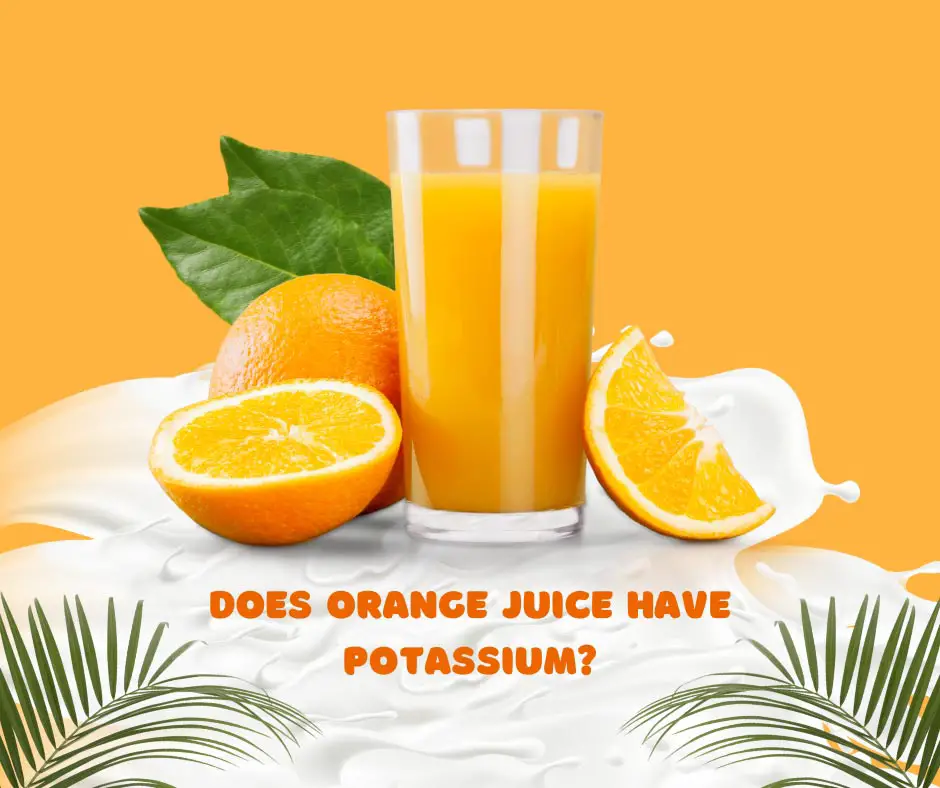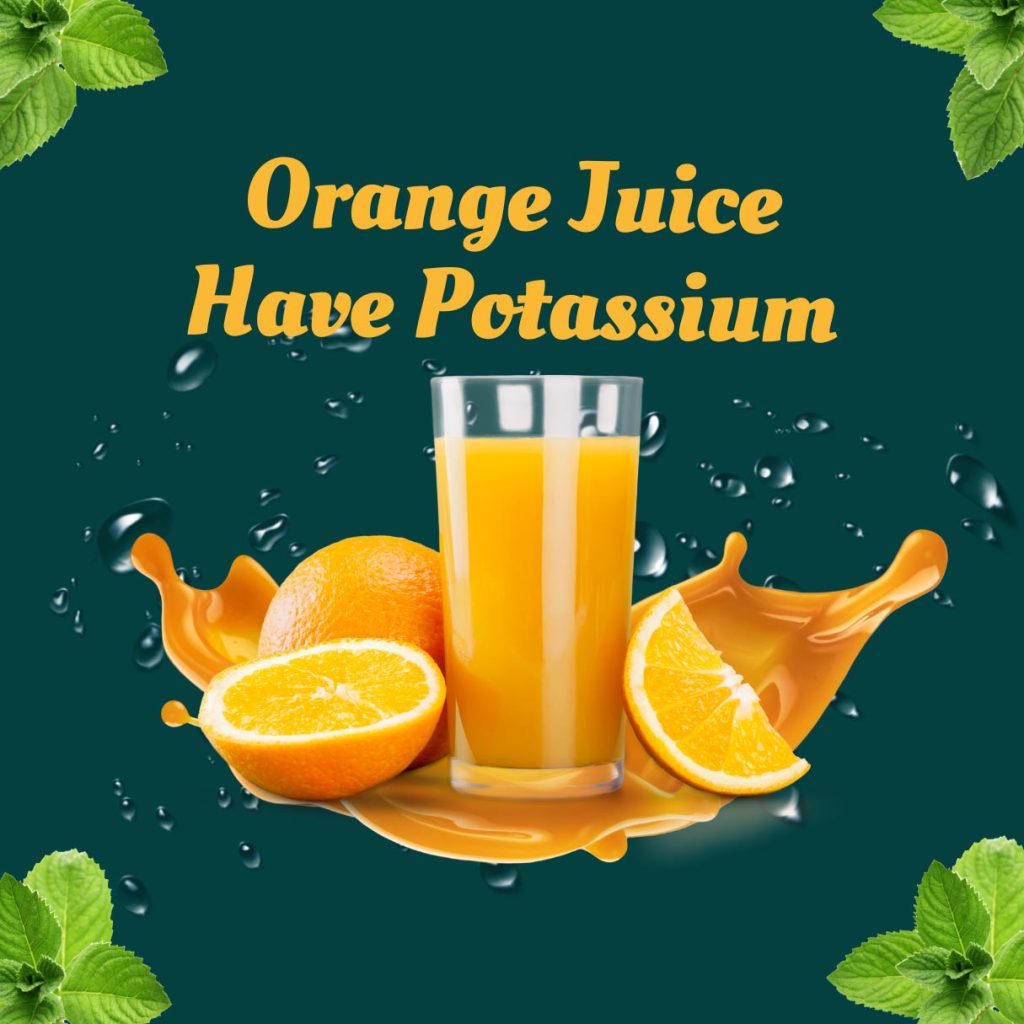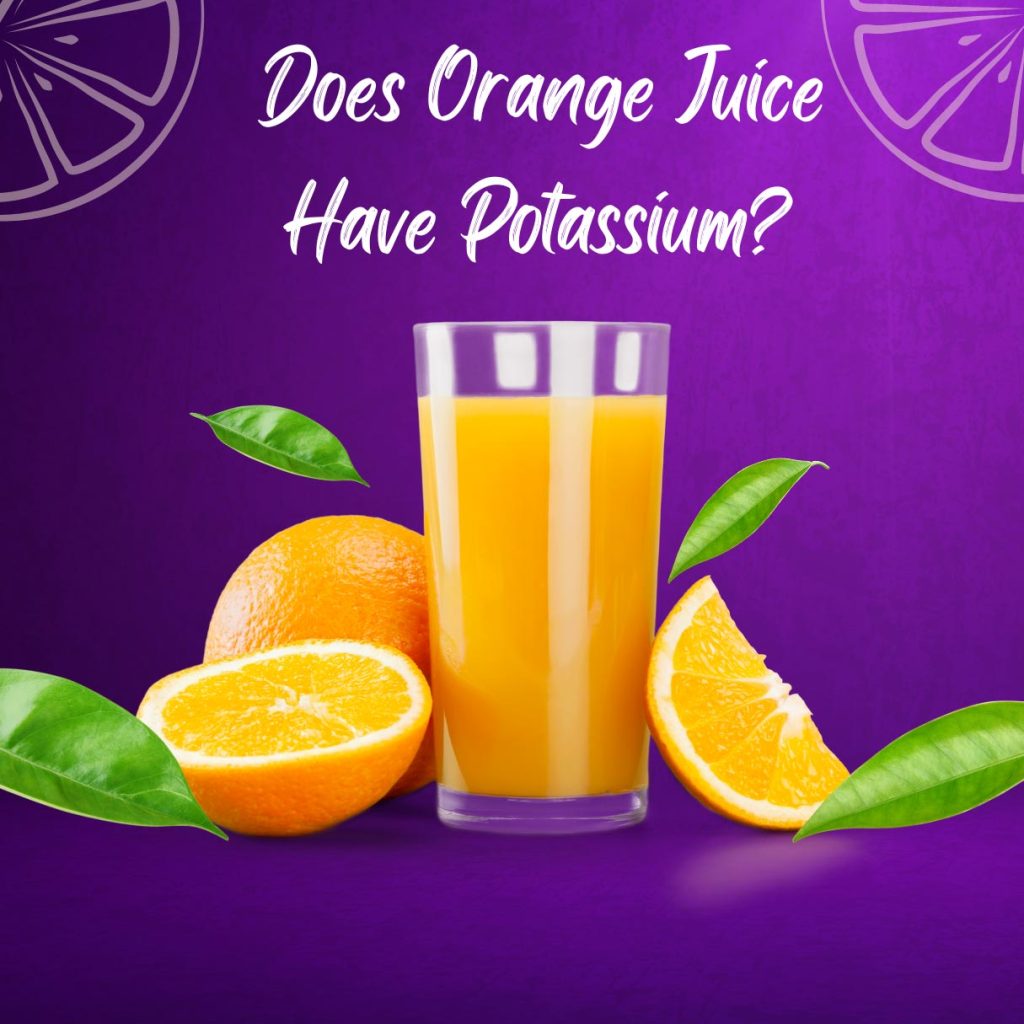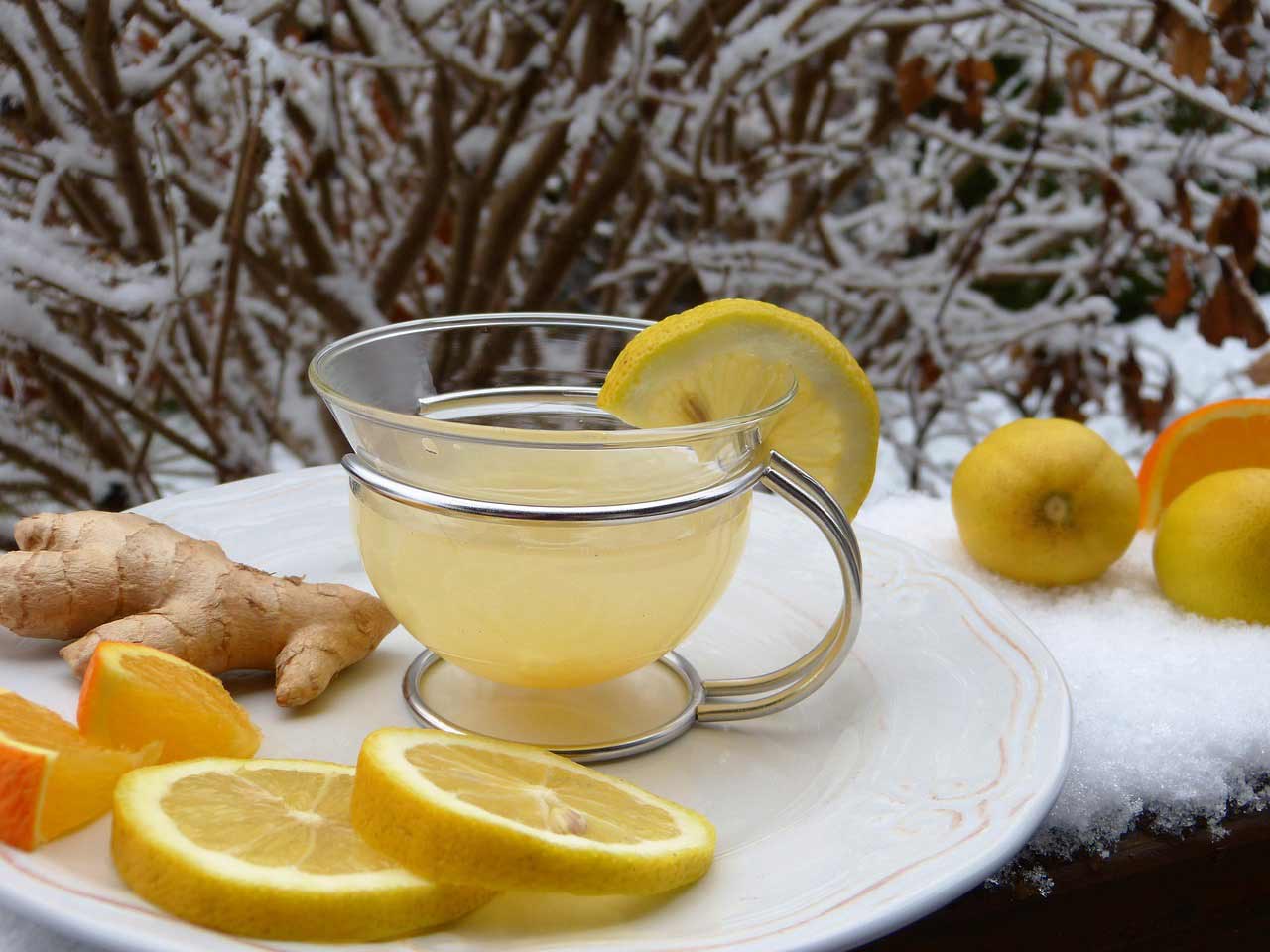You might grab an orange juice glass when you consider how to start your day properly. Is there potassium in orange juice, though? A resounding yes is the response!
Not only is orange juice refreshing, but it is also high in potassium and other essential nutrients.
What is Potassium?
Many body processes depend critically on potassium, an essential mineral and electrolyte. It supports appropriate contraction of the muscles, neuronal transmission, and cardiac function.
To keep your body’s fluids and electrolytes in balance and to guarantee the functioning of your cells, tissues, and organs, you need potassium.
Key Functions of Potassium:
- Heart Health: Potassium helps regulate blood pressure by counteracting the effects of sodium. Adequate potassium intake can help lower blood pressure and reduce the risk of heart disease.
- Muscle Function: It is necessary for proper muscle contraction and function. Potassium helps prevent muscle cramps and supports overall muscle health.
- Nerve Function: Potassium is critical for transmitting nerve impulses throughout the body. It helps nerves send signals to and from the brain efficiently.
- Fluid Balance: It helps maintain the right balance of fluids in your cells, which is essential for overall hydration and cell function.
Sources of Potassium
- Potassium can be found in various foods, including:
- Fruits like bananas, oranges, and melons
- Vegetables such as spinach, potatoes, and sweet potatoes
- Dairy products like milk and yogurt
- Nuts and seeds
- Fish and meats
For more detailed information on potassium and its importance, refer to this ScienceDirect article.
Does Orange Juice Have Potassium? The Nutritional Breakdown
Sure, orange juice is a great source of potassium. About 450 milligrams of potassium are in an eight-ounce glass of orange juice. This amounts to approximately 10% of the daily recommended consumption for adults. You can easily meet your daily potassium requirements by incorporating orange juice into your diet.

Health Benefits of Potassium in Orange Juice
Here’s a table outlining the health benefits of potassium found in orange juice:
| Health Benefit | Description |
|---|---|
| Supports Heart Health | Helps regulate blood pressure by balancing the effects of sodium, reducing the risk of heart disease. |
| Promotes Muscle Function | Essential for proper muscle contraction, preventing cramps and supporting overall muscle health. |
| Aids in Nervous System Function | Vital for transmitting nerve impulses, ensuring efficient communication between the brain and body. |
| Maintains Fluid Balance | Helps regulate the balance of fluids in cells, crucial for hydration and cell function. |
| Bone Health | Contributes to bone strength and reduces the risk of osteoporosis by preserving calcium in bones. |
| Kidney Function | Assists in reducing the risk of kidney stones by decreasing calcium loss through urine. |
| Reduces Stroke Risk | Adequate potassium intake is linked to a lower risk of strokes by helping maintain healthy blood vessels. |

How to Incorporate Orange Juice into Your Diet
Here are some easy ways to add orange juice to your daily meals:
- Morning Drink: Start your day with a refreshing glass of orange juice at breakfast.
- Smoothies: Blend orange juice with your favorite fruits for a tasty and healthy smoothie.
- Salad Dressing: Use orange juice as a base for a homemade salad dressing.
- Cooking: Add orange juice to marinades for meat or veggies for extra flavor.
- Baking: Replace water with orange juice in baking recipes for a citrusy twist.
- Ice Pops: Freeze orange juice in molds to make healthy ice pops.
- Mocktails: Mix orange juice with sparkling water and a splash of lime for a refreshing mocktail.
These simple tips can help you enjoy the benefits of orange juice throughout your day.
Other Sources of Potassium
Except for orange juice, there are several foods high in potassium. Easily included in your diet as a snack or in smoothies, bananas are a well-known source. Whether baked, mashed, or roasted, potatoes are high in potassium, especially their skins. You can use spinach and other leafy greens, high in potassium, in smoothies, soups, and salads.
Avocado is a great substitute that works well in guacamole, salads, and sandwiches. Together with other vital minerals, dairy products such as milk and yogurt supply potassium. Nuts and seeds like almonds and sunflower seeds, which are high in potassium, also provide protein and good fats.
As part of a balanced diet, fish and meats—especially salmon and chicken—contain potassium. Beans and legumes, such as kidney and lentil beans, are a wonderful way to get potassium from plants and go well in salads, stews, and soups. You can easily meet your daily potassium needs by incorporating a variety of these items into your diet.

Conclusion
Does orange juice, then, contain potassium? Unquestionably. Orange juice supports your heart, muscles, and general health; include it in your regular regimen to reap its benefits.
Remember the next time you pour a glass, you’re giving your body much-needed potassium in addition to a delicious beverage.

Je m’appelle Gunther Adam et je suis ravi de partager avec vous le monde des saveurs vibrantes, de la vie saine et de l’art du goût. Learn More




